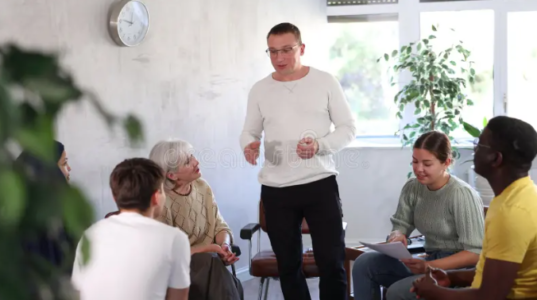Churches in Singapore grapple with balancing faith, acceptance, and LGBTQ+ inclusivity in new dialogues.
It was nearly nine years ago when Ms. Chua’s daughter came out as transgender. Uncertain of how to respond, Ms. Chua asked, “Will it be a sin to support my child?” This question was posed at a private event on LGBTQ issues at Inspire Church, organized by The Whitehatters, a group creating spaces for sensitive conversations in Singapore. Attended by 80 people, including pastors Miak Siew, Chang Tou Chen, and Ian Toh, the discussion tackled diverse perspectives on faith and LGBTQ identities.
The audience was predominantly from Free Community Church and Truelove.Is of 3:16 Church, which have each approached LGBTQ matters with differing perspectives. Some Muslim attendees observed, considering how such dialogues might be conducted in their own communities. Initially hesitant, I was invited to cover this event by interfaith advocate Mohamed Imran Mohamed Taib, unsure of how to write about this challenging subject. Balancing the clash between Christian doctrine and evolving societal norms felt particularly tricky.
Historically, the Church has denounced homosexual behavior, while societal attitudes have shifted towards greater tolerance. Even the government distanced itself, with the Ministry of Culture, Community, and Youth opting not to fund the event, which was held as part of the Ask Me Anything series, typically supported by the Harmony Fund. However, silence is no longer an option for churches. A 2019 survey by the Institute of Policy Studies showed that 51.1% of Christians are open to religious leaders addressing LGBTQ topics.
Ms. Chua’s personal journey resonated with me, especially since we share a background in conservative Chinese churches, which often avoid the subject. My church only broached LGBTQ issues once, during the 2018 debate over section 377A of the penal code. The pastor simply relayed a statement from the National Council of Churches, expressing a desire to keep the law in place without further comment.
In some churches, LGBTQ individuals are rarely visible, making their struggles easy to ignore. Pastor Toh from Truelove.Is adheres to the belief that homosexual acts are sinful, though he distinguishes these from homosexual desires, which he views as temptations. Meanwhile, Pastor Miak from Free Community Church celebrates love in monogamous relationships, regardless of sexual orientation.
Imran moderated the dialogue, aiming to foster a civil discussion. Despite the potential for heated exchanges, both groups engaged respectfully, finding common ground in the belief that churches should not turn LGBTQ people away.
Though Pastor Toh reaffirmed his church’s stance against same-sex marriages, he emphasized that his ministry’s focus is pastoral support, distinguishing it from hyper-conservative churches. However, Truelove.Is has been criticized for its controversial support methods, with some accusing it of using conversion therapy, a claim the group denies.
Pastor Toh continues to explore how best to reconcile faith with LGBTQ experiences. He acknowledged that he’s still learning and that there isn’t one clear answer. Similarly, Pastor Miak cautioned that churches must be careful not to perpetuate feelings of unworthiness or shame in LGBTQ individuals. Many have left the church or sought solace elsewhere, sometimes turning to harmful coping mechanisms.
However, there are encouraging signs that churches are becoming more open to discussing LGBTQ issues. Pastor Toh noted that even conservative Chinese churches are reaching out to hold similar dialogues. This month, his ministry is set to engage hundreds of church leaders in conversation.
During the dialogue, participants shared deeply personal stories. Amy*, for instance, recounted how a friend took her own life, in part because she felt rejected as an LGBTQ individual. Brandon* explained how he struggled to belong in a church that offered little pastoral support for his queer identity.
The in-person setting fostered a more civil discussion than what might typically be seen online, where anonymity often leads to toxic discourse. Participants, reminded to listen respectfully, engaged thoughtfully in small group discussions, facilitated by The Whitehatters. At one point, a participant took a break, overwhelmed by the powerful stories shared.
While the event didn’t provide definitive answers to the complex question of reconciling faith with LGBTQ identities, it succeeded in starting the conversation. As Imran observed, “We often talk about each other, now we are talking to each other.”
Names have been changed to ensure confidentiality, as the dialogue was held under Chatham House rules to promote free discussion.








